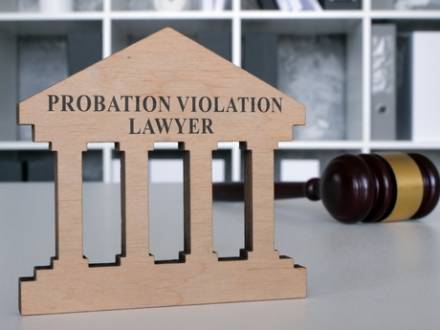Avoiding the Most Common Illinois Probation Violations
 Between 2010 and 2023, the number of people in Illinois prisons fell nearly 40 percent, reaching the lowest level since 1991. The general consensus is that the decline in the prison population is due to broad changes in sentencing practices, especially the increased use of community supervision (probation). A shift in thinking regarding sentencing goals, the increased availability of community-based options like probation, and concerns over the cost of incarceration have led to these significant changes.
Between 2010 and 2023, the number of people in Illinois prisons fell nearly 40 percent, reaching the lowest level since 1991. The general consensus is that the decline in the prison population is due to broad changes in sentencing practices, especially the increased use of community supervision (probation). A shift in thinking regarding sentencing goals, the increased availability of community-based options like probation, and concerns over the cost of incarceration have led to these significant changes.
A number of specialized alternative treatment programs that keep those convicted of a crime out of prison have been seen across the state. Jail-based programs, police-led deflection efforts that divert people into treatment, specialized treatment courts, and enhanced probation services are all making substantial contributions to divert people from prison whenever possible. The state has also dedicated funding to programs like Adult Redeploy Illinois.
Generally speaking, probation is a much better solution than incarceration whenever it is possible, allowing those convicted of a crime to serve their sentences within the community but under strict supervision. Probation has conditions that must be strictly followed. Violations can result in an individual having his or her probation revoked and being sent to prison. If you have questions or concerns regarding the chances of probation for specific charges or your current probation, an Oakbrook Terrace, IL criminal defense attorney can help.
What is Illinois Probation?
Probation is court-ordered supervision that serves as an alternative to jail or prison time. Probation comes with conditions, and while one person’s probation conditions can be different than another’s, the following are the most common types of conditions:
- Rehabilitation programs (drug, alcohol, gambling, etc.)
- Counseling sessions
- Obtaining employment
- Consistent check-ins with a probation officer
- Random alcohol and drug testing
- Community service
- Paying all assessed fines
- Making restitution to victims
- Avoiding any type of criminal activity
The Most Common Violations of Illinois Probation
One condition that virtually every person placed on probation has is regular check-ins with his or her probation officer. Missing those regular check-ins with the probation officer is also one of the most common violations. These check-ins are in no way optional. Even if a person has a legitimate reason for missing a meeting with his or her probation officer, it could still be considered a violation. Failing a drug or alcohol test is also considered a serious violation. Other common violations of probation include:
- Failure to completely pay all fines, fees, or restitution ordered by the date provided
- Failure to consistently attend counseling sessions or mandated programs
- The commission of a new crime (can lead to immediate probation revocation)
Depending on the severity of the violation and whether the individual has prior violations, the judge could extend the length of the probation or add new conditions to the probation, like increased reporting or more community service hours. In more extreme situations, the judge can order a short jail sentence or revoke the probation entirely, reinstating the original jail or prison sentence.
Is There a Valid Defense to Probation Violations?
Those accused of a probation violation must take this issue seriously, speaking to an attorney who can build a solid defense. There may be a lack of evidence that the individual violated his or her probation, or the violation could have been entirely unintentional, such as missing a check-in because of a serious illness or a family emergency. For a person who is financially unable to pay his or her fines, fees, or restitution, the attorney can argue that the individual acted in good faith. For a person accused of another crime, there may have been a mistaken identification.
Contact a Chicago, IL Probation Violations Attorney
If you have been notified that your probation terms were violated, it is important to contact a Rolling Meadows, IL probation violations lawyer from Hartsfield Law as quickly as possible. Attorney Hartsfield’s diverse background ranges from experience representing indigent defendants for the Will County Public Defender’s Office to experience as an educator for the City Colleges of Chicago, for which he taught courses to pre-trial detainees at the Cook County Department of Corrections. To schedule your free consultation, call 312-345-1700.













 312-345-1700
312-345-1700



